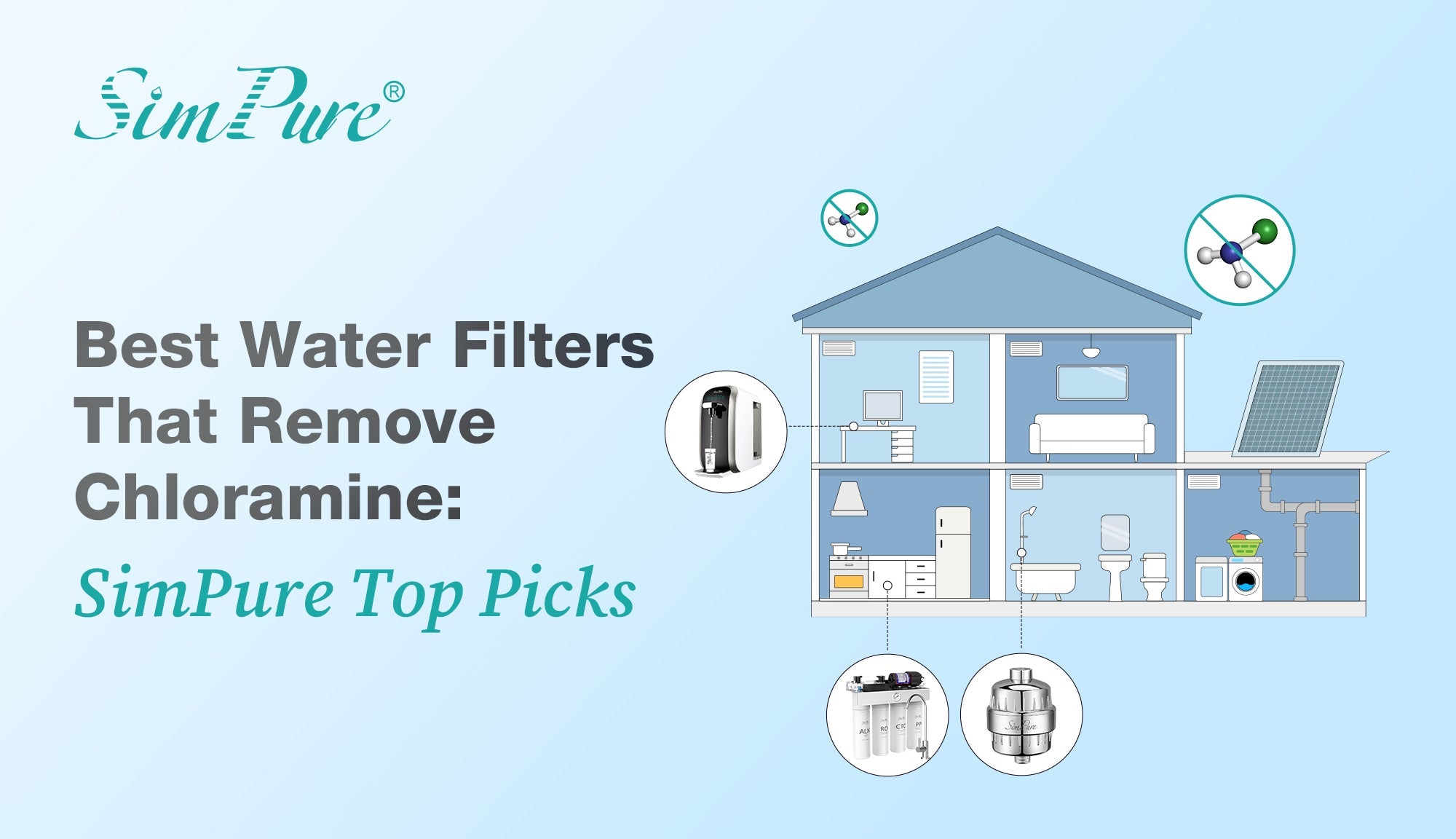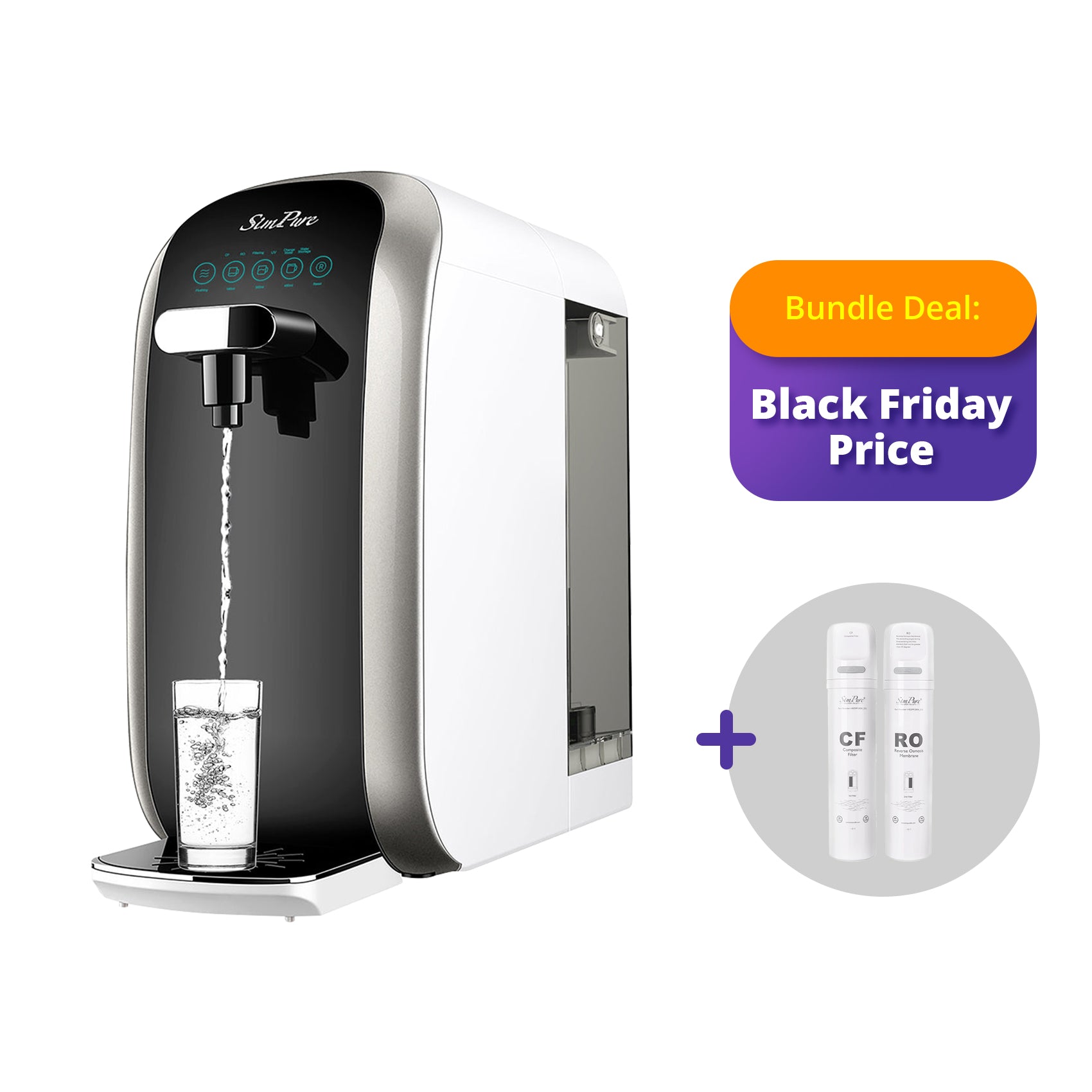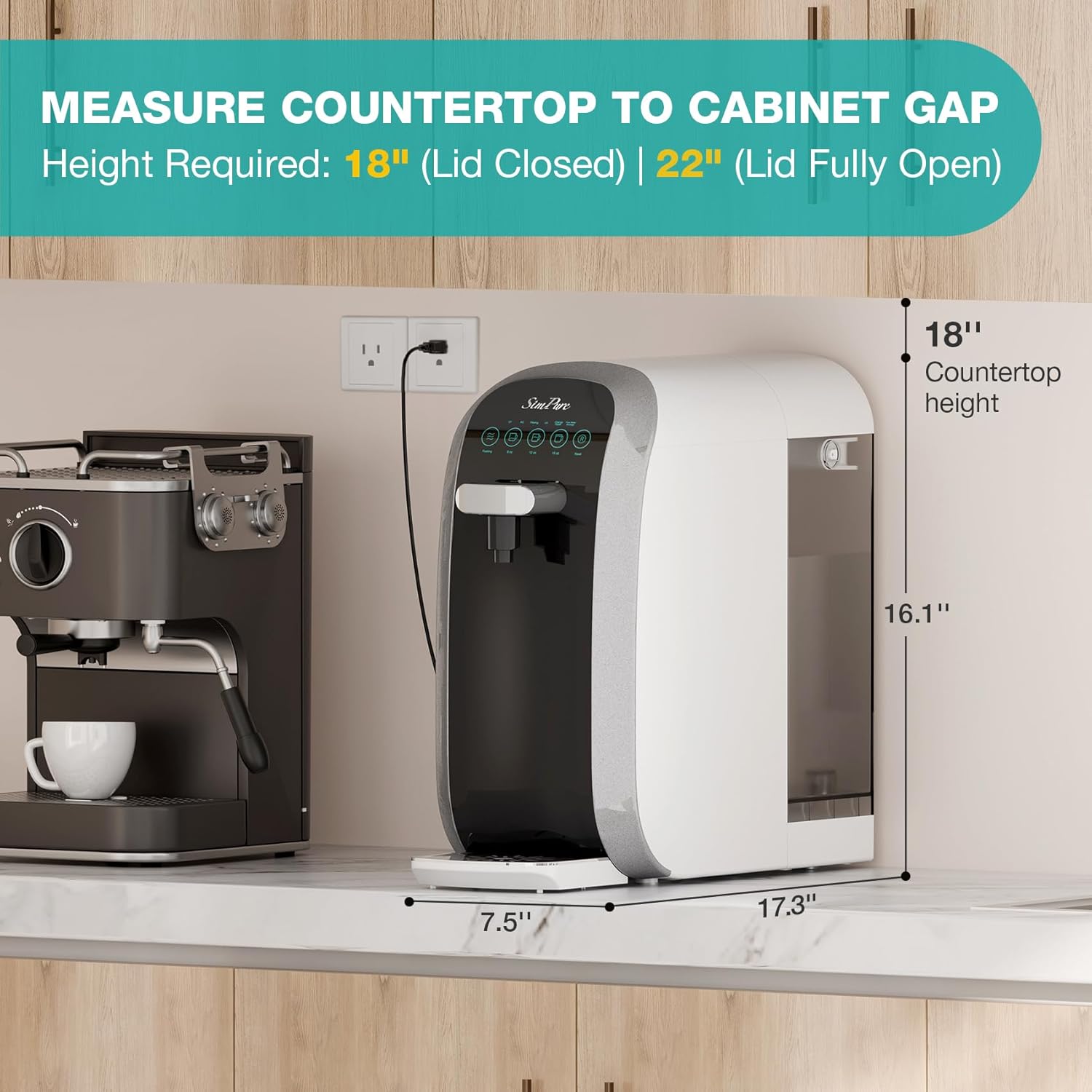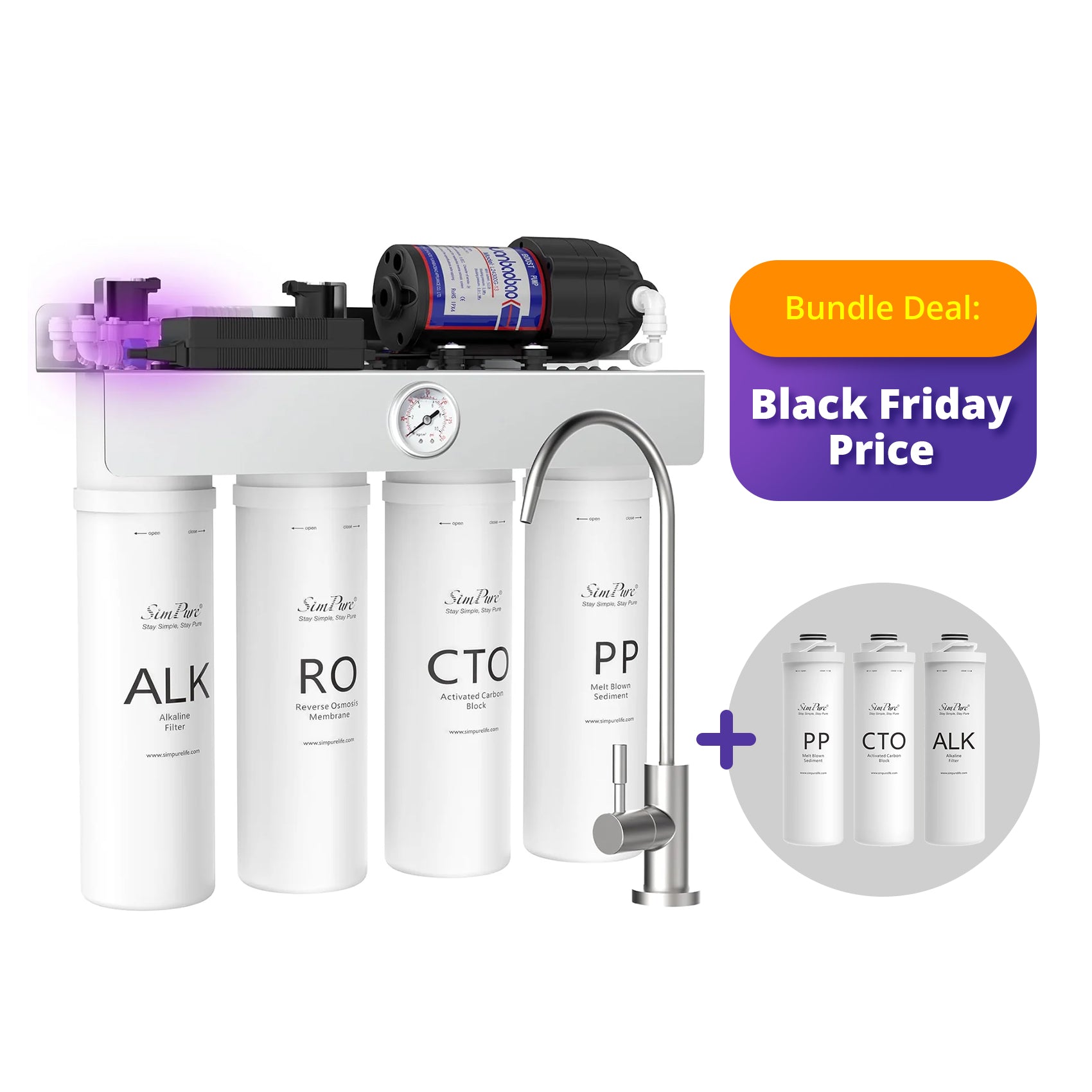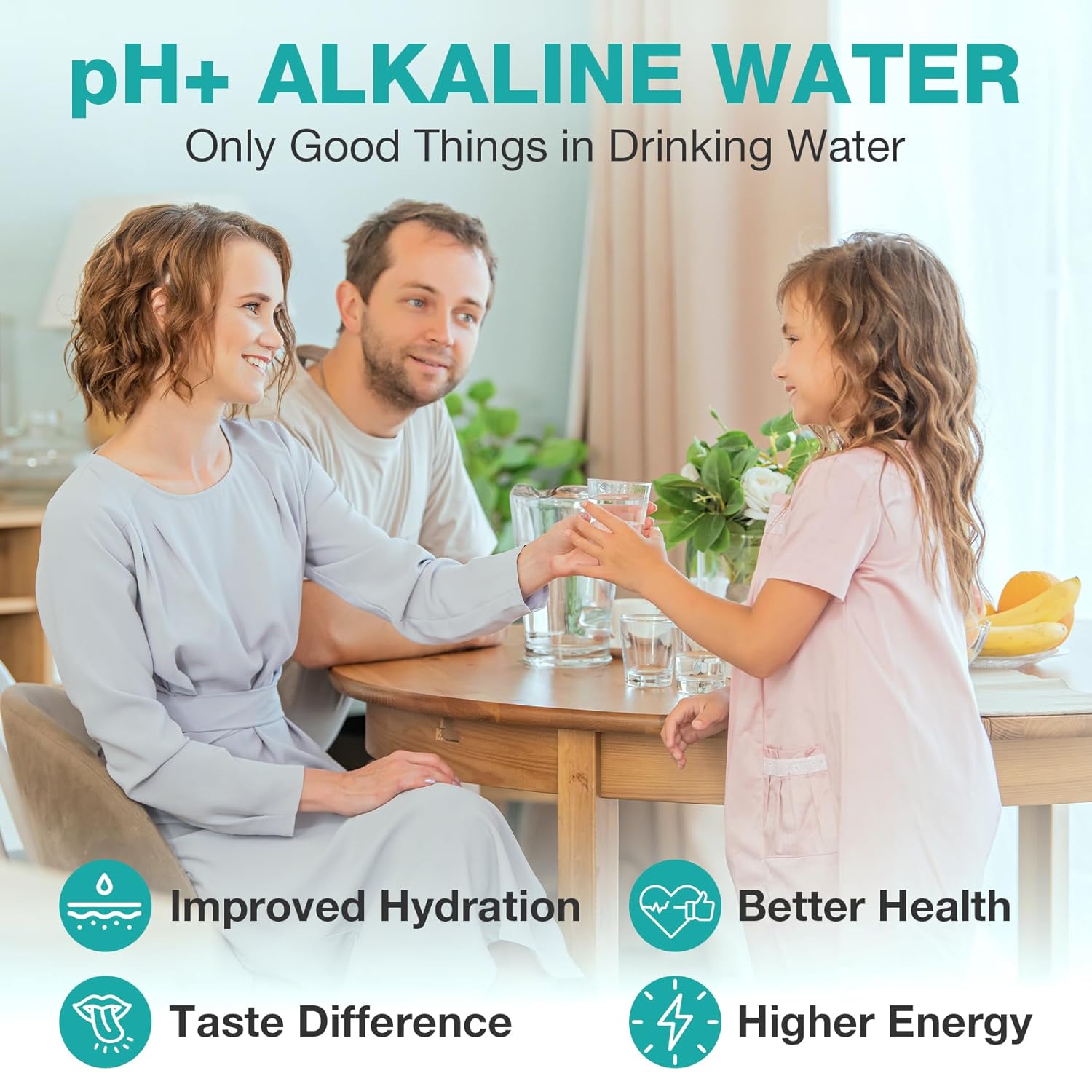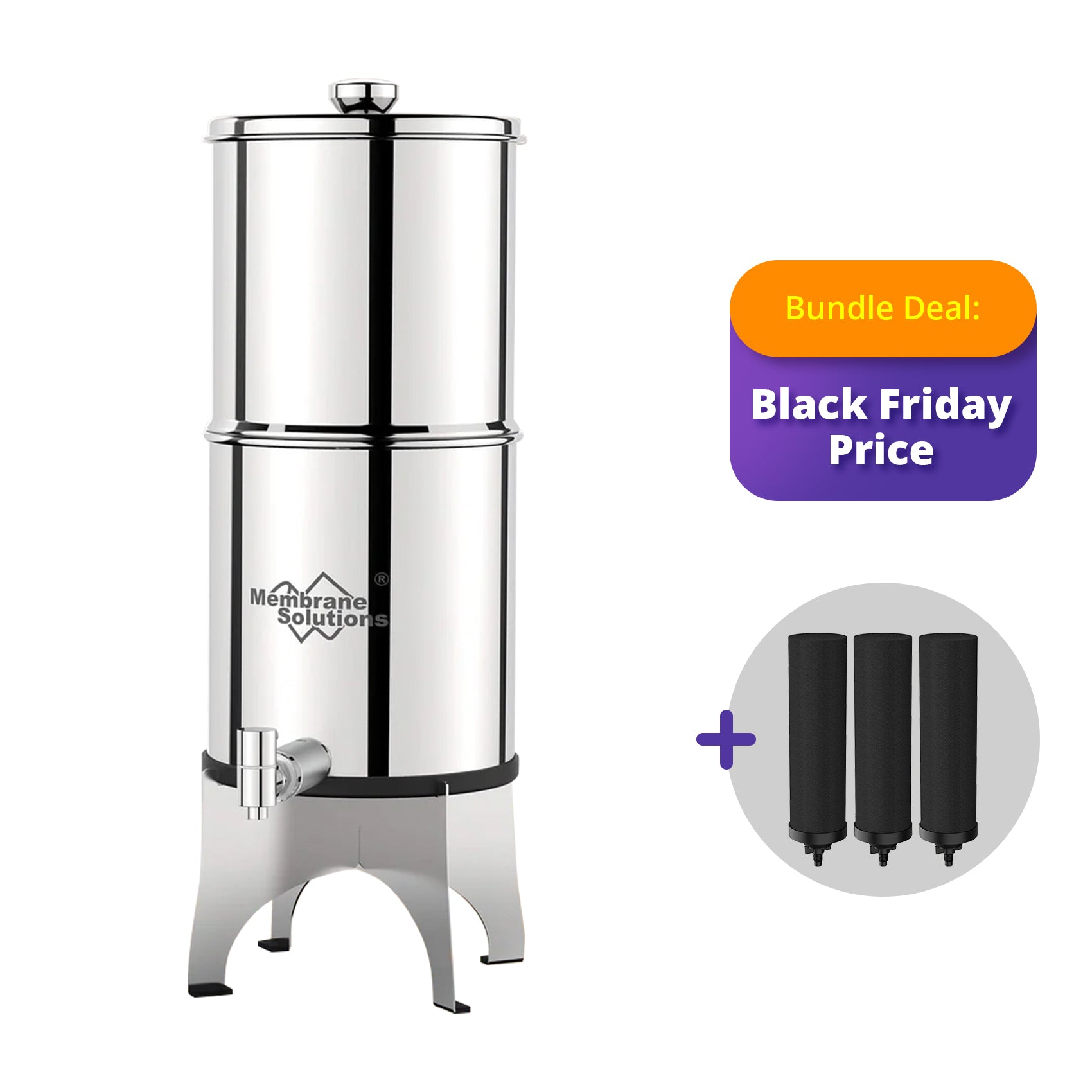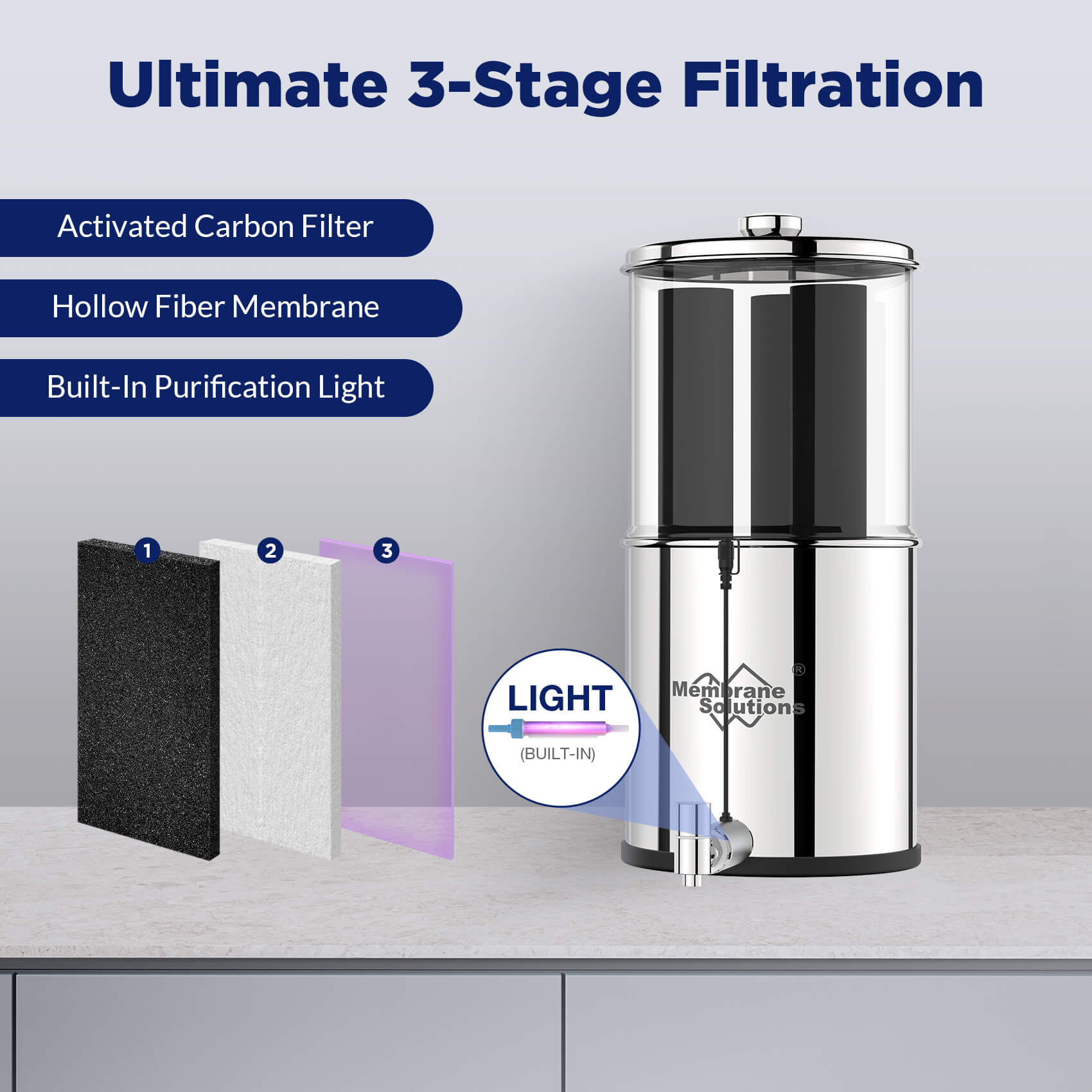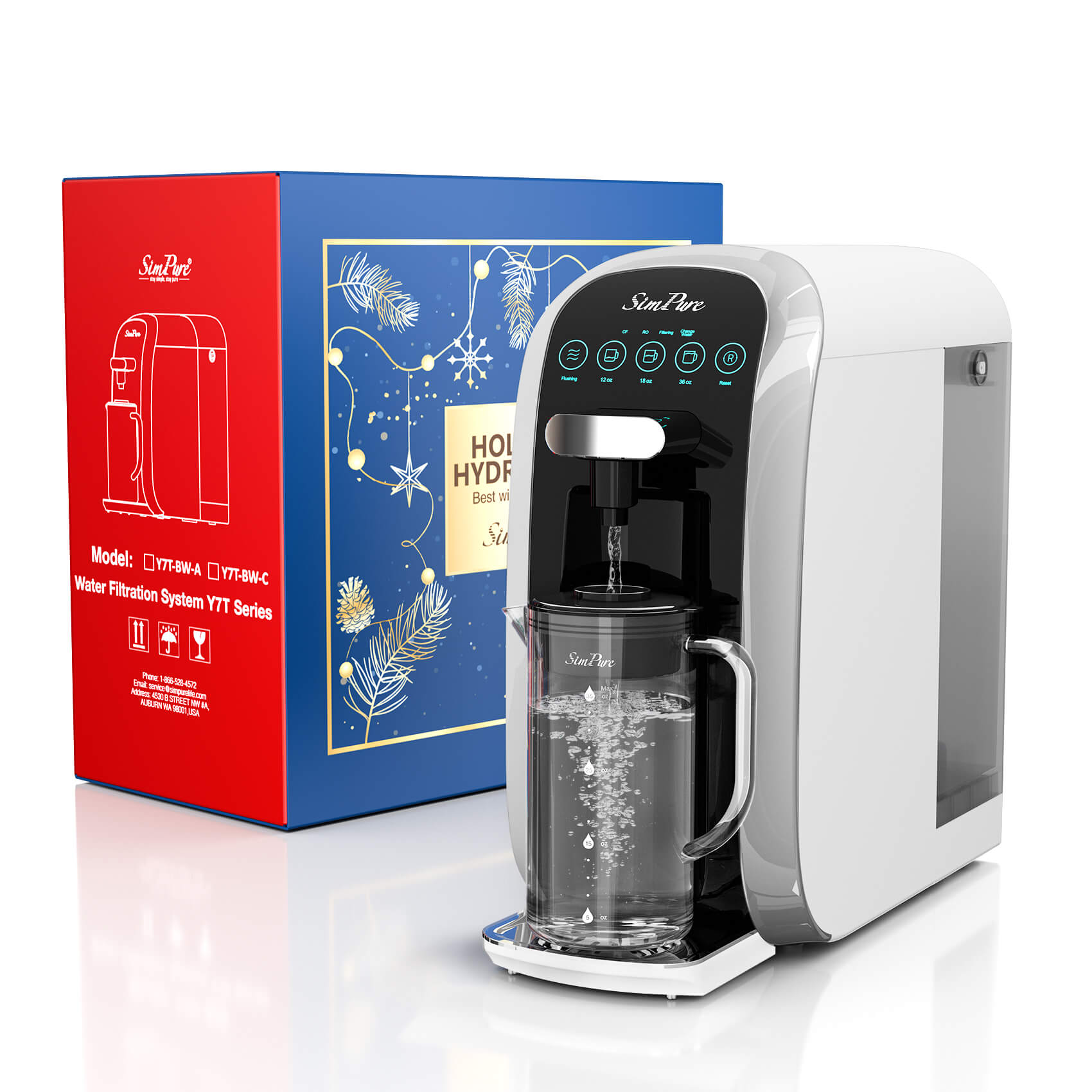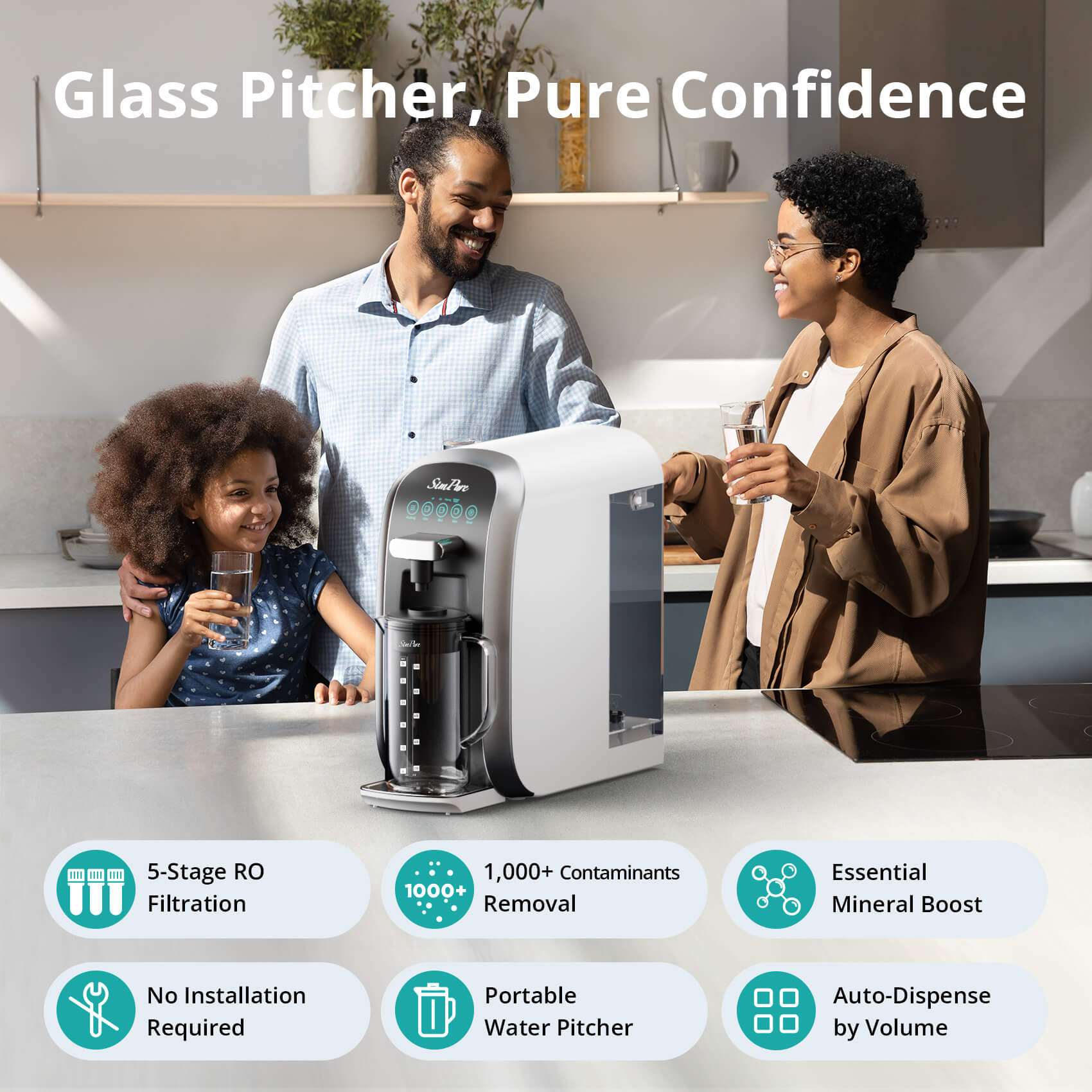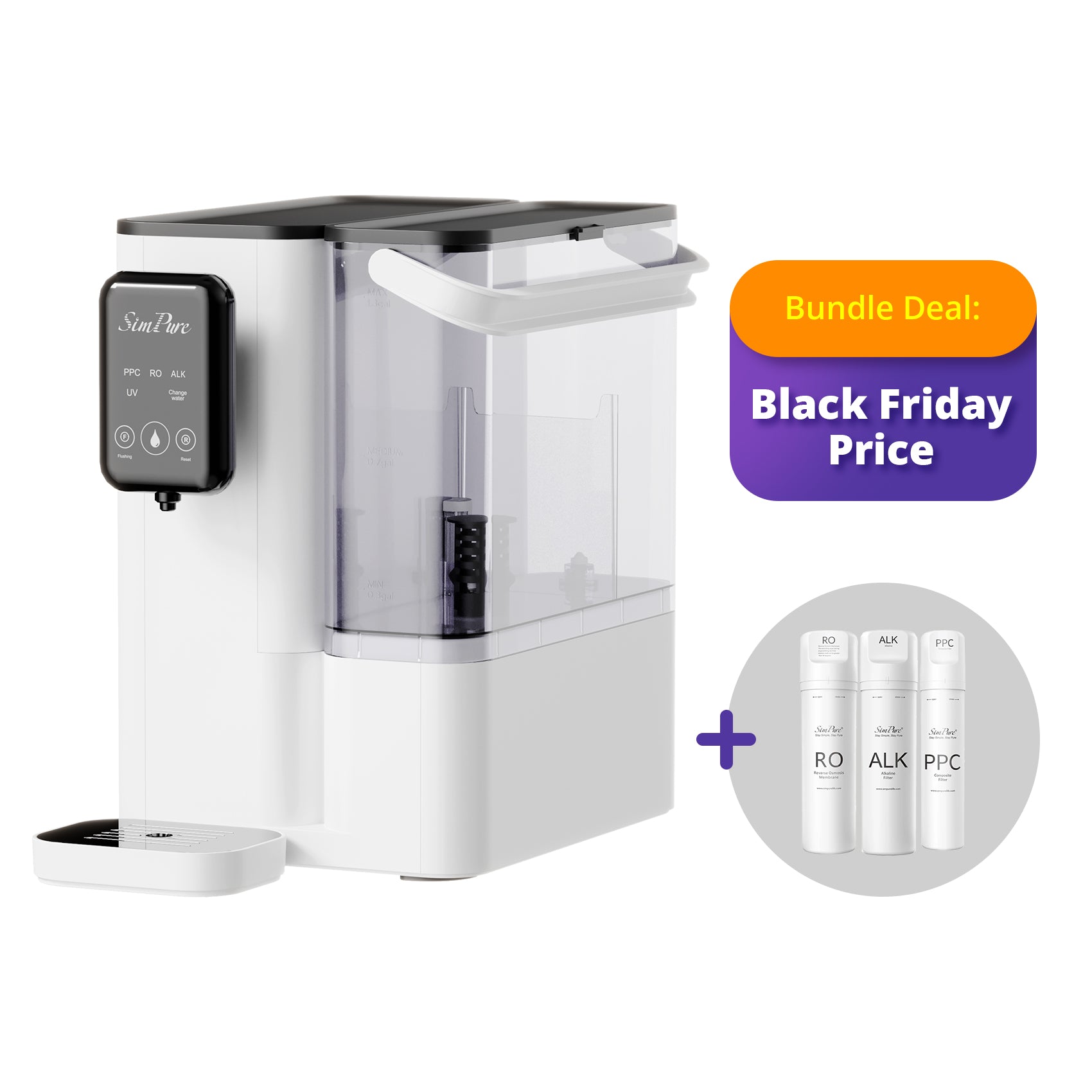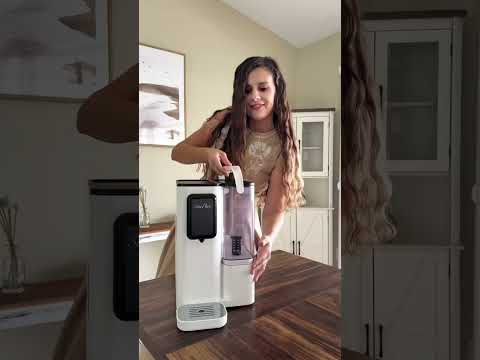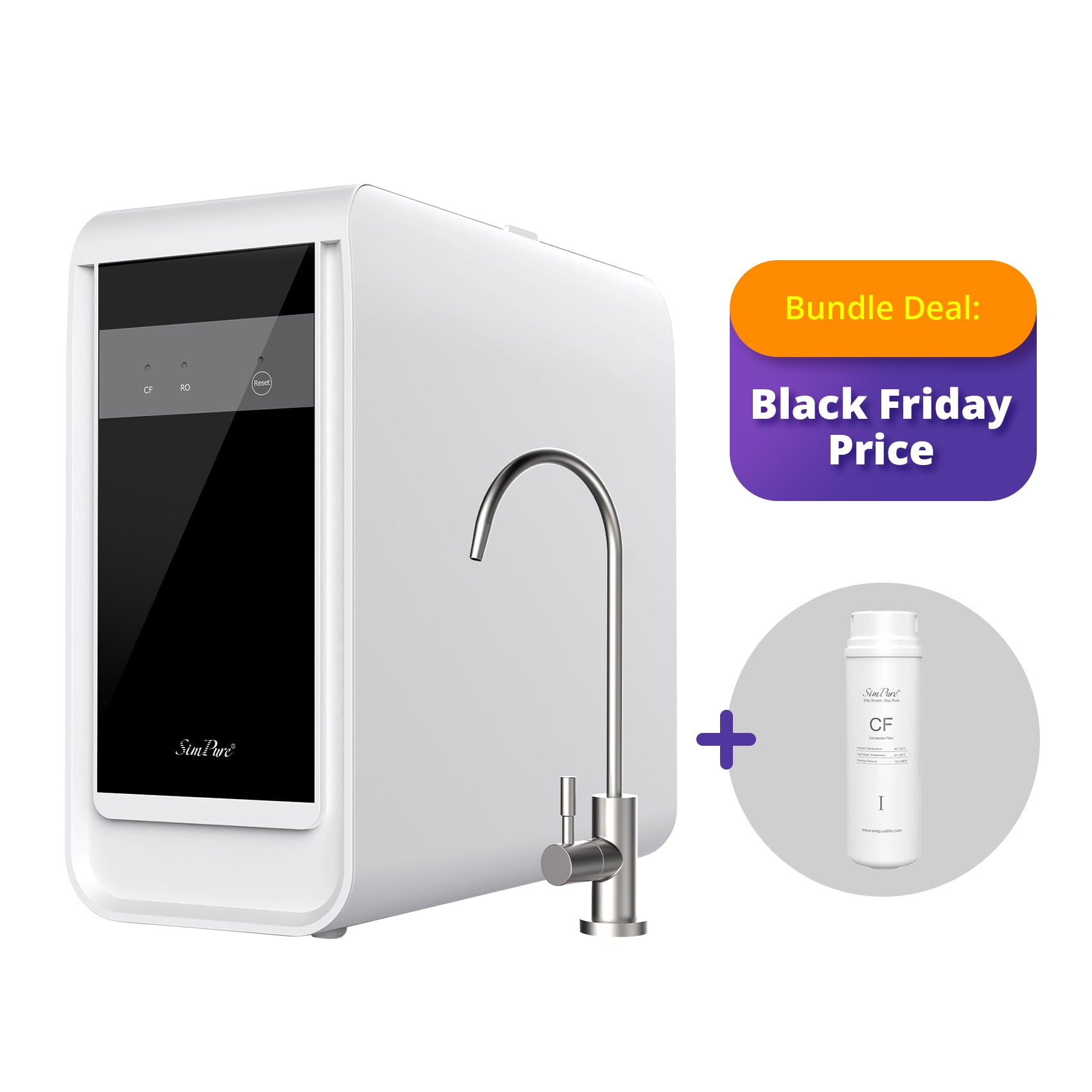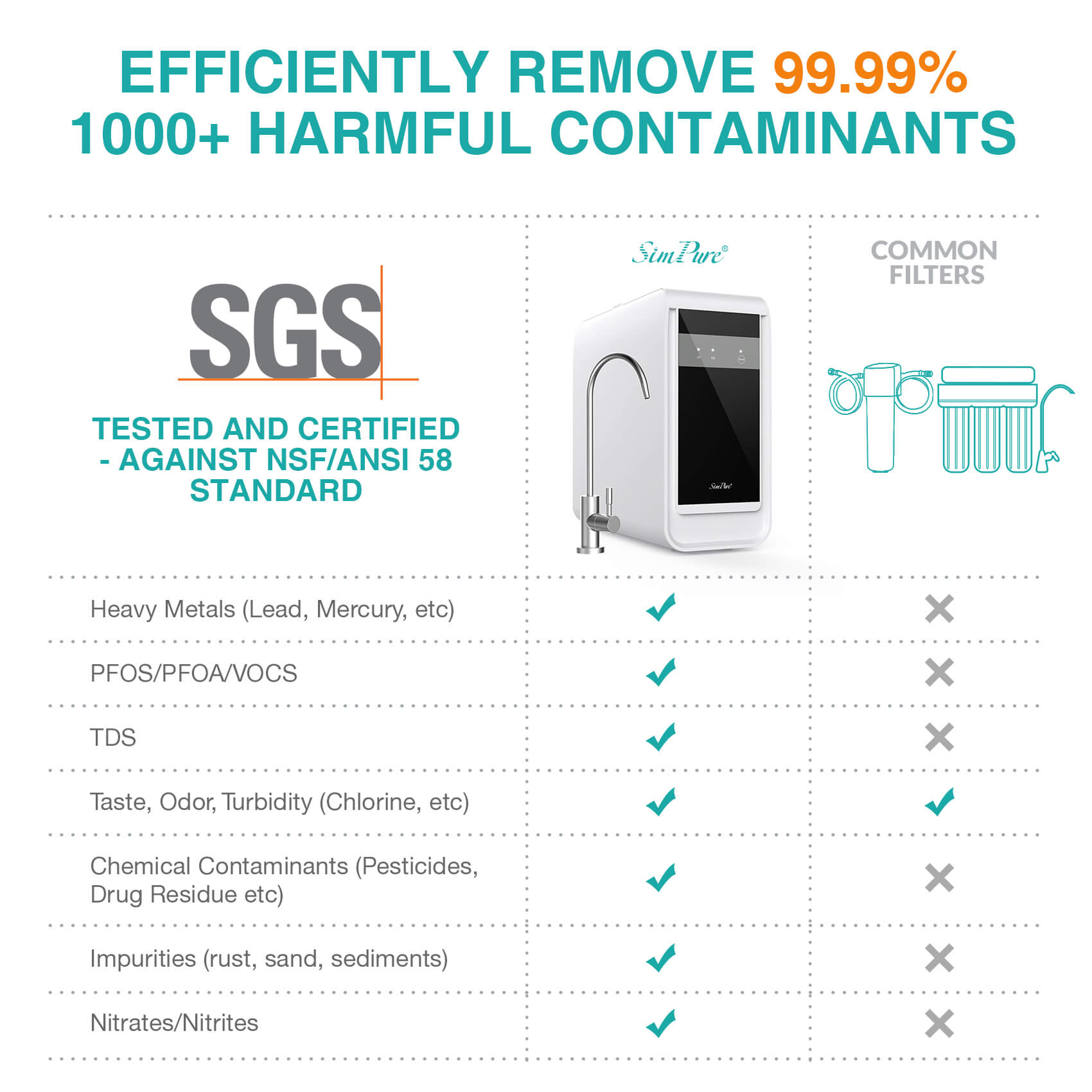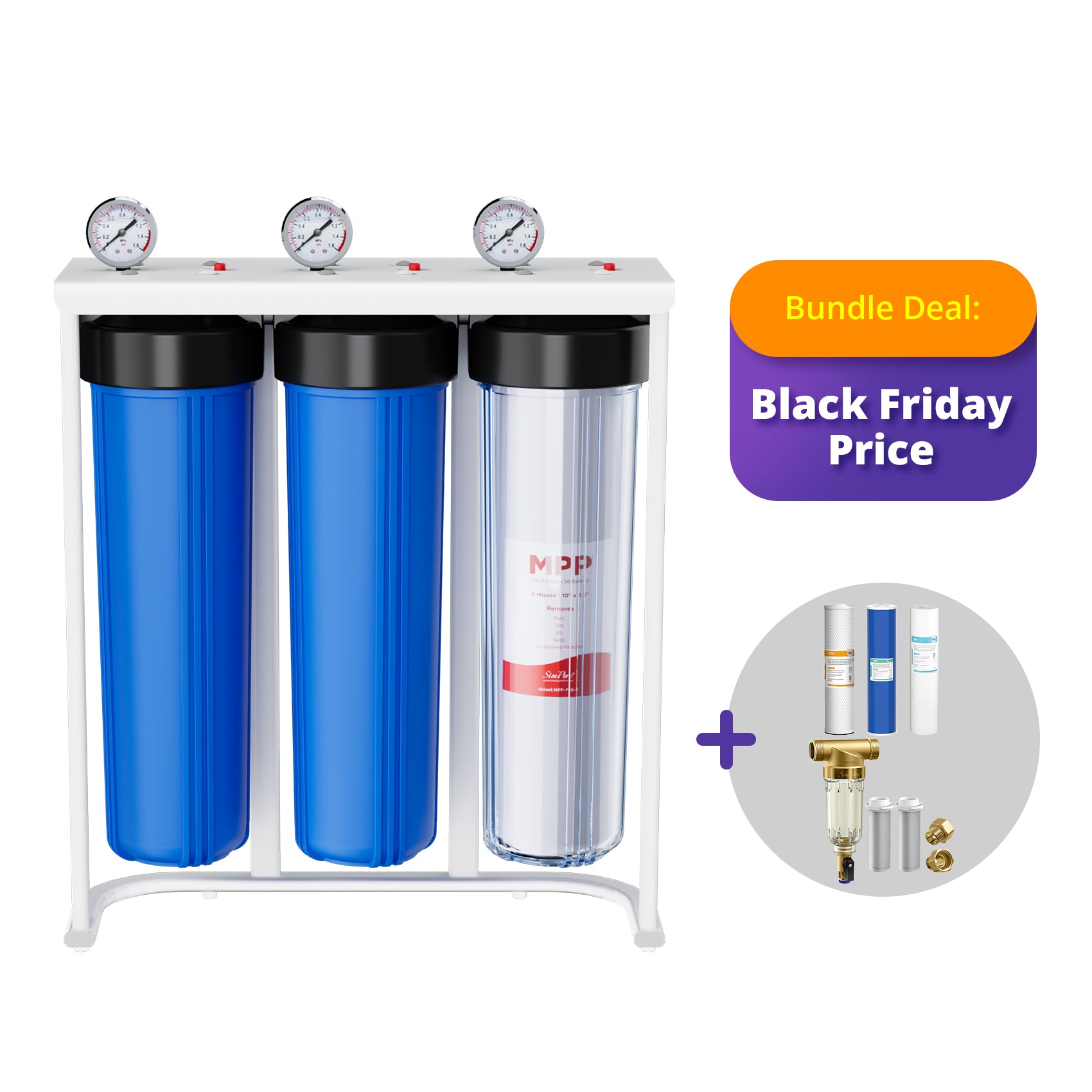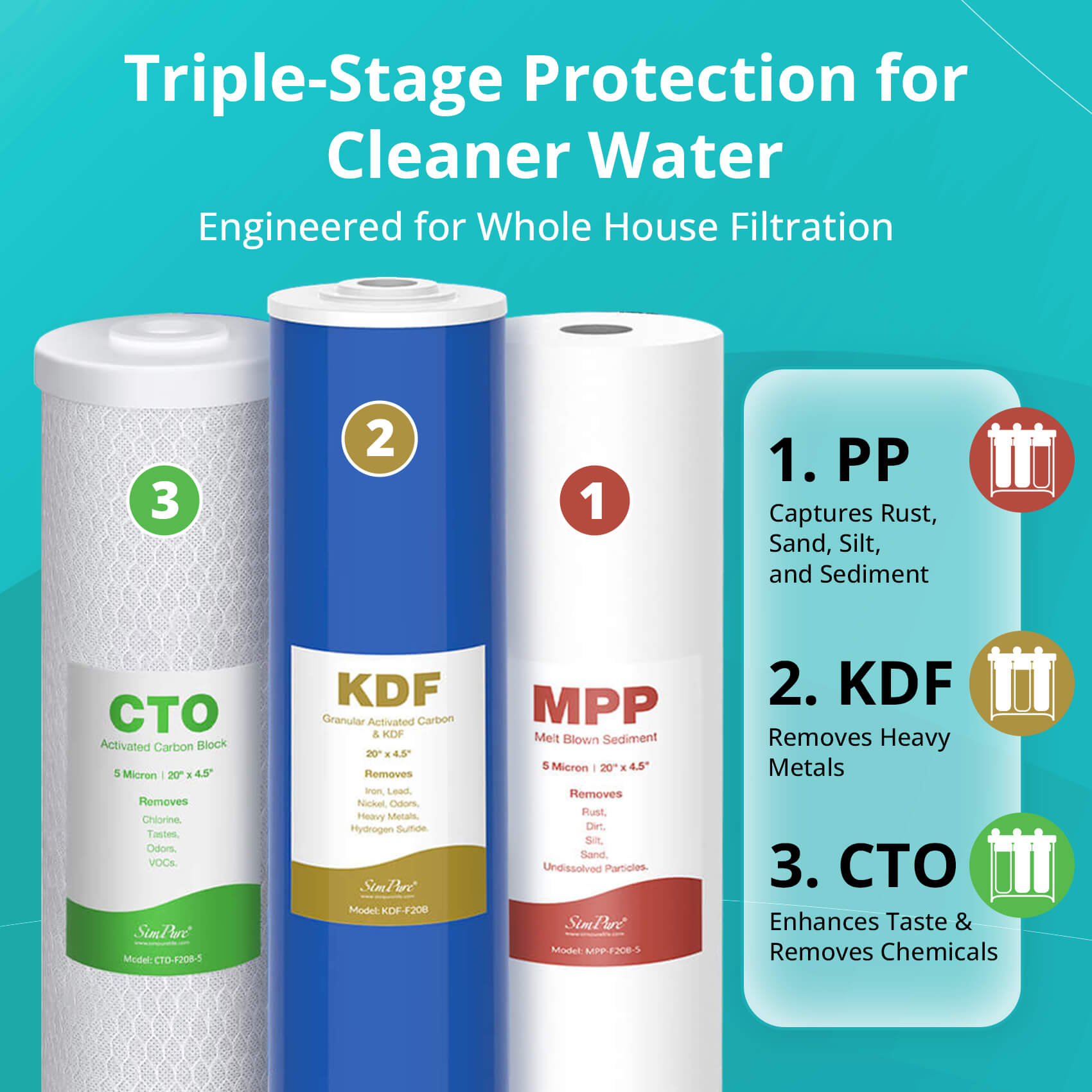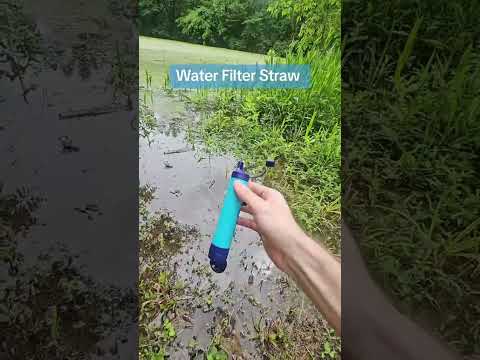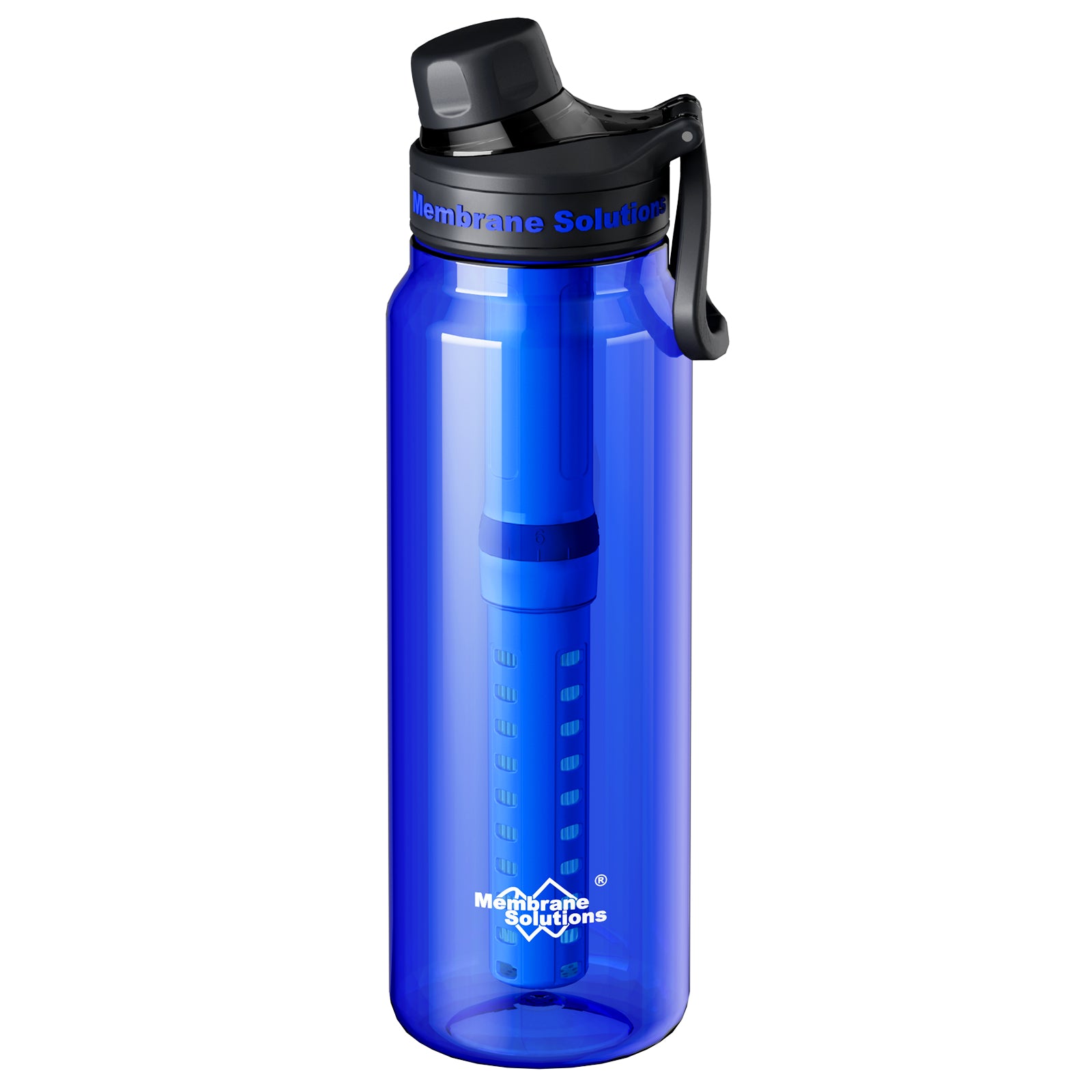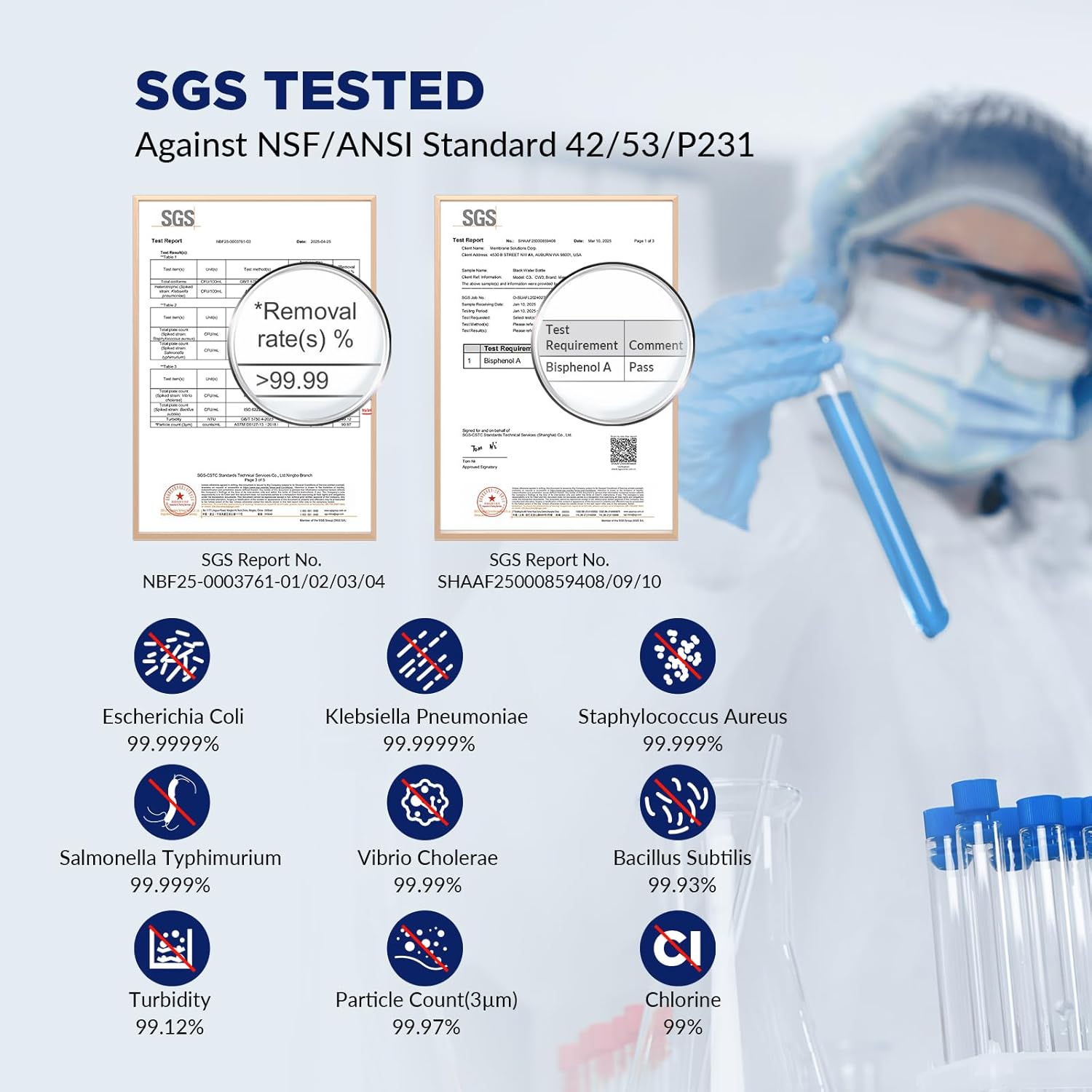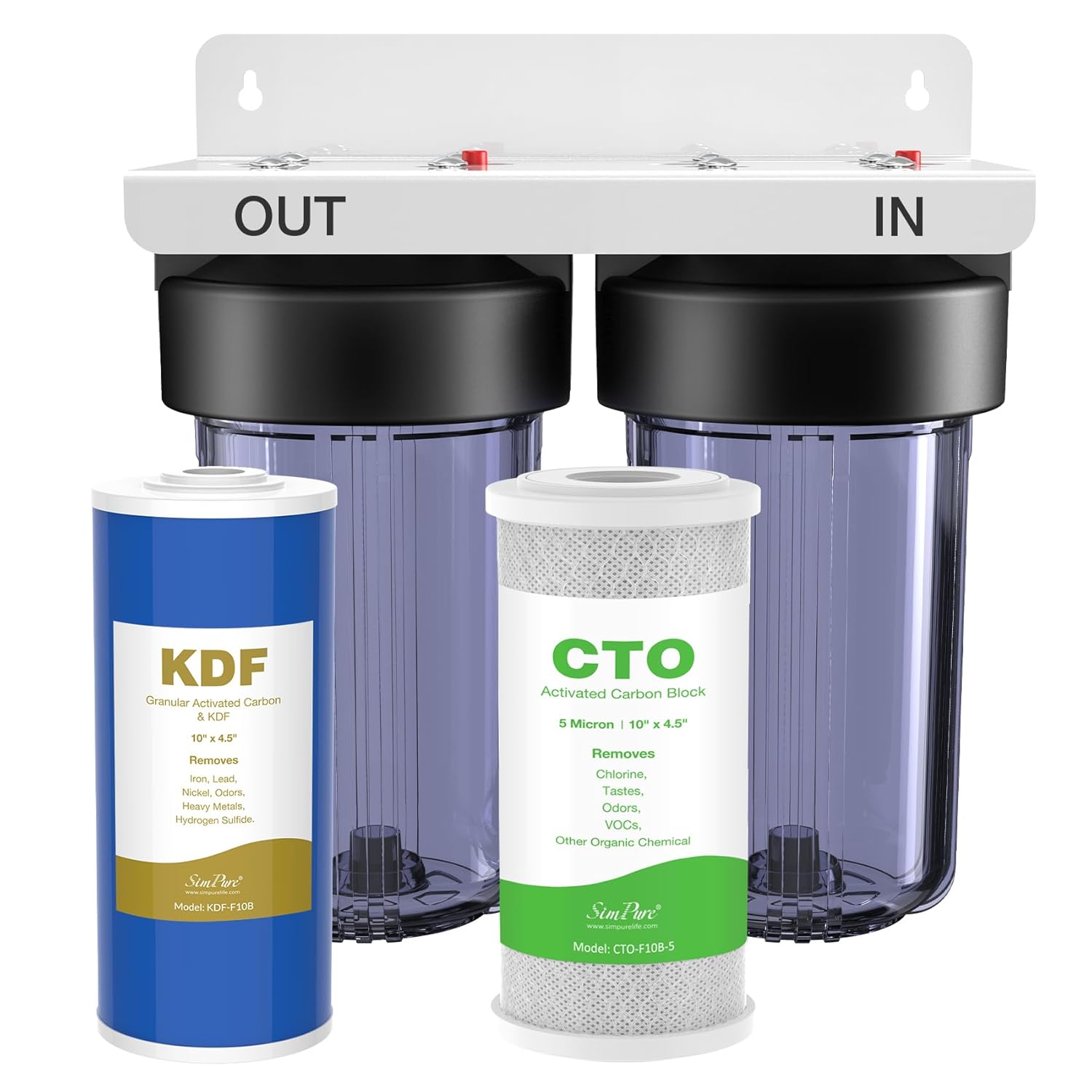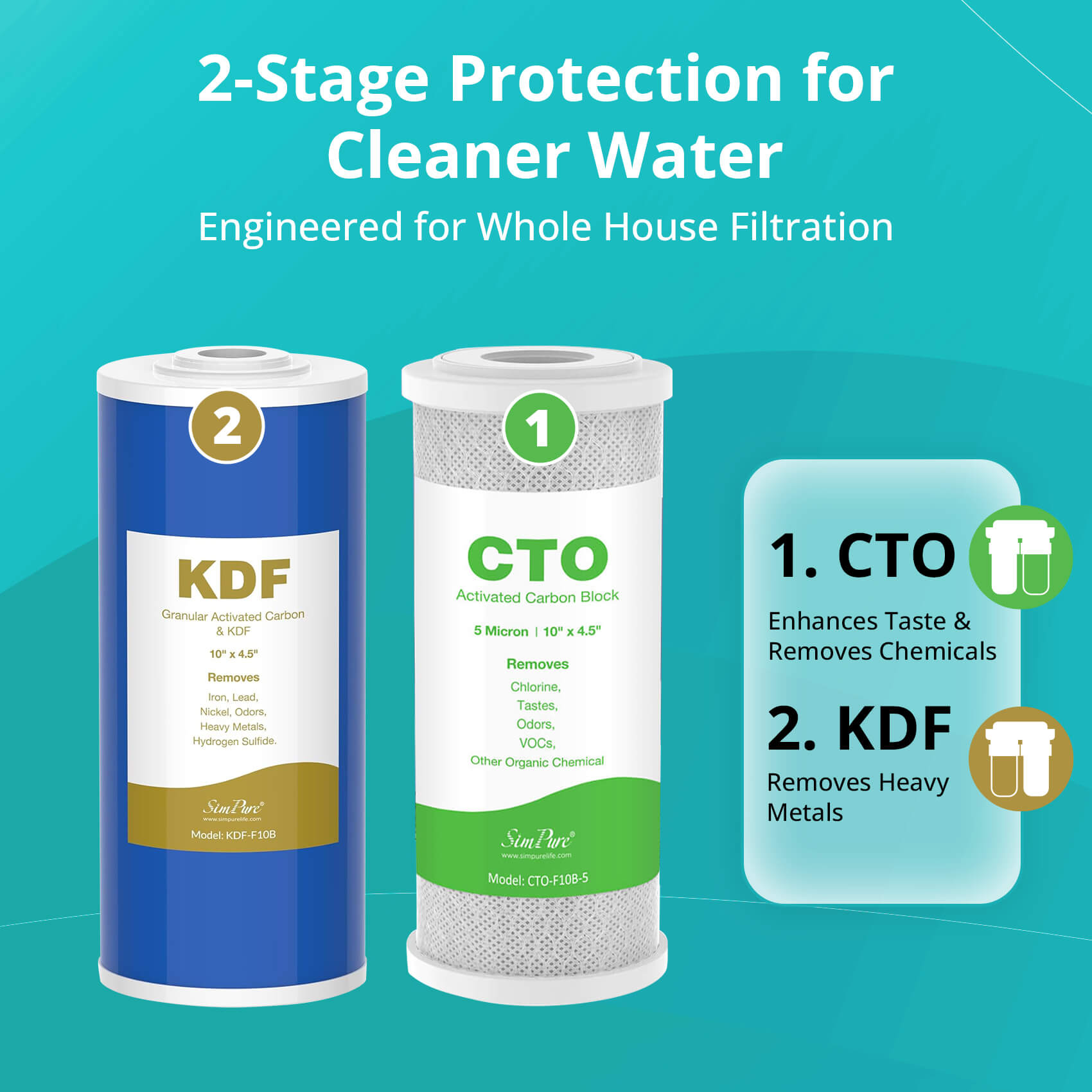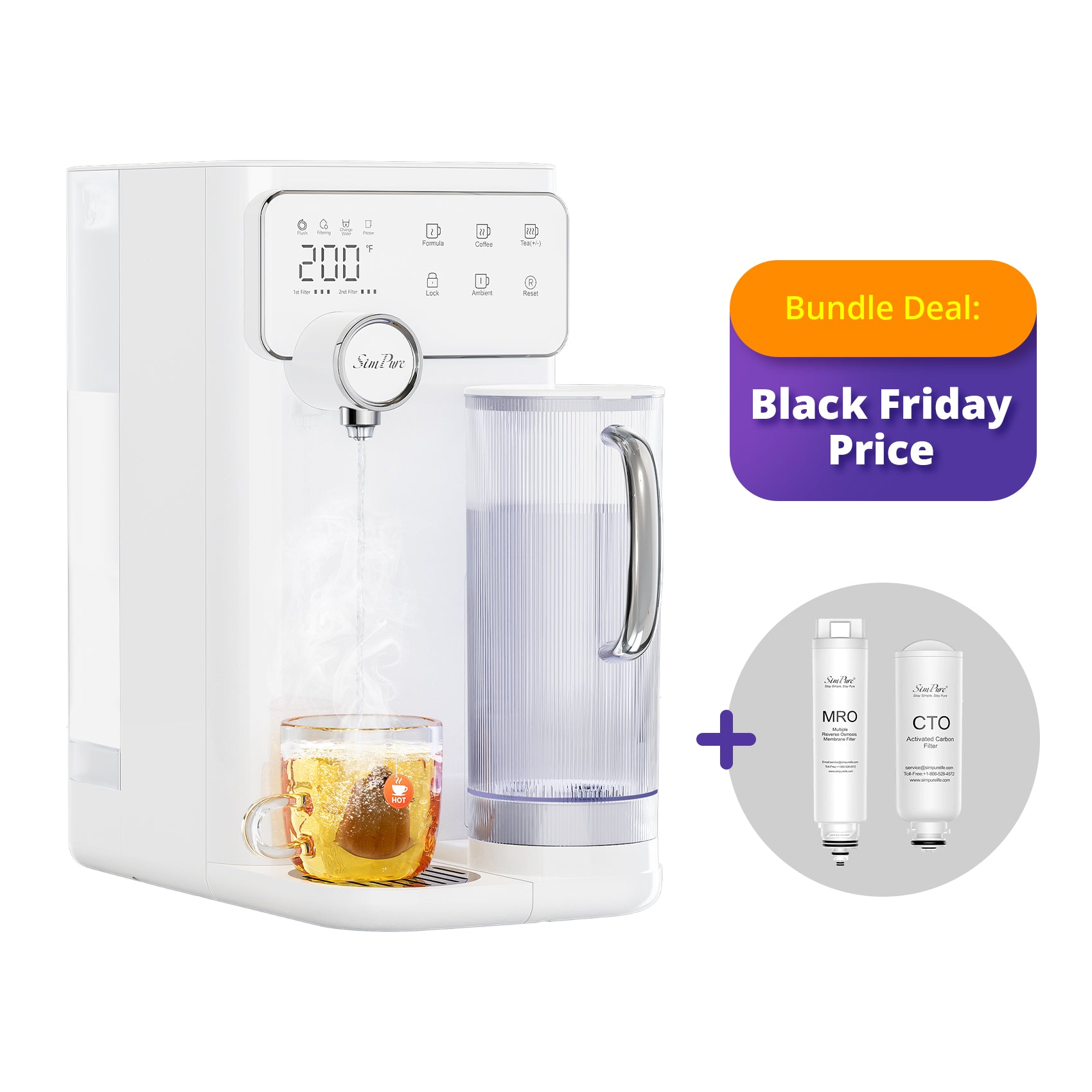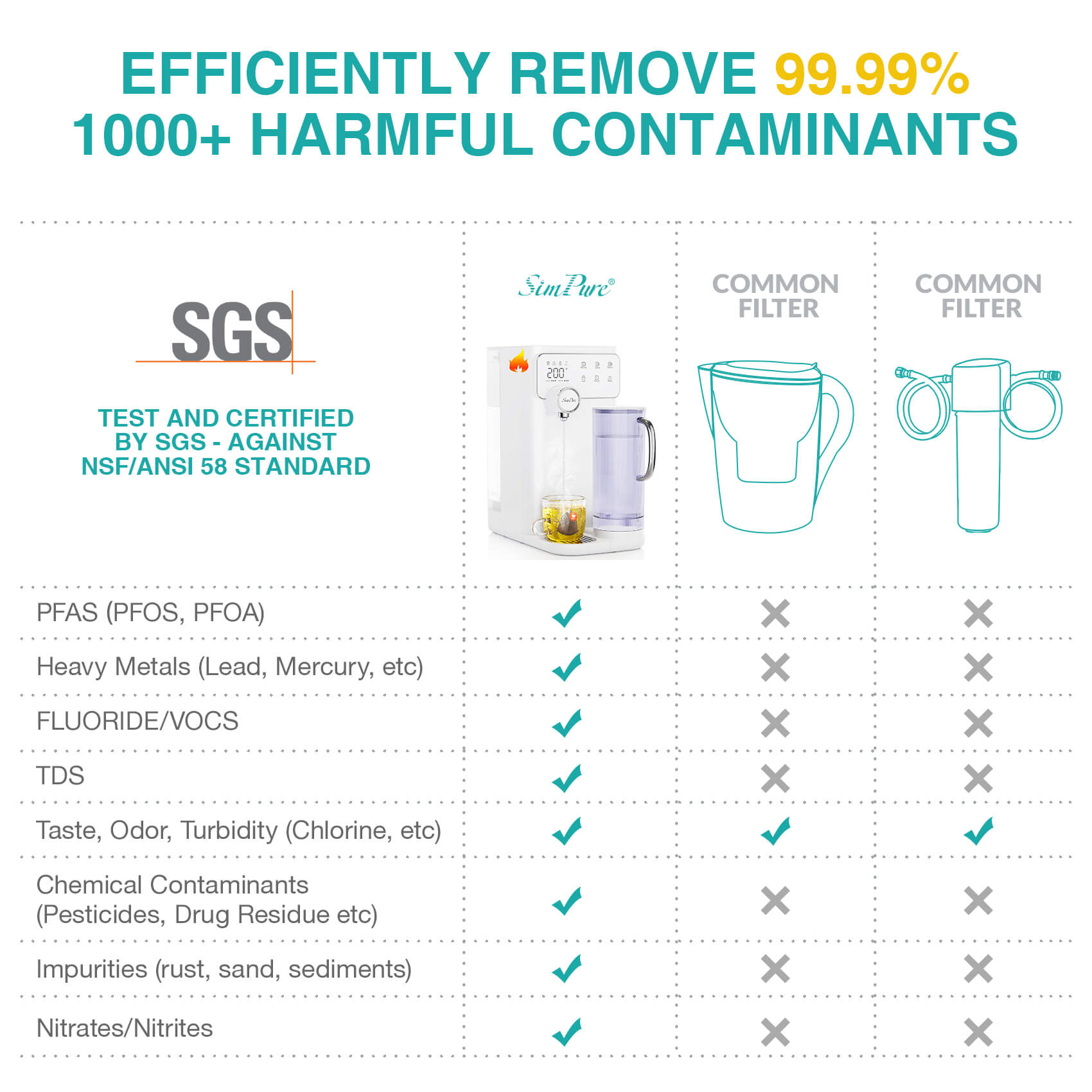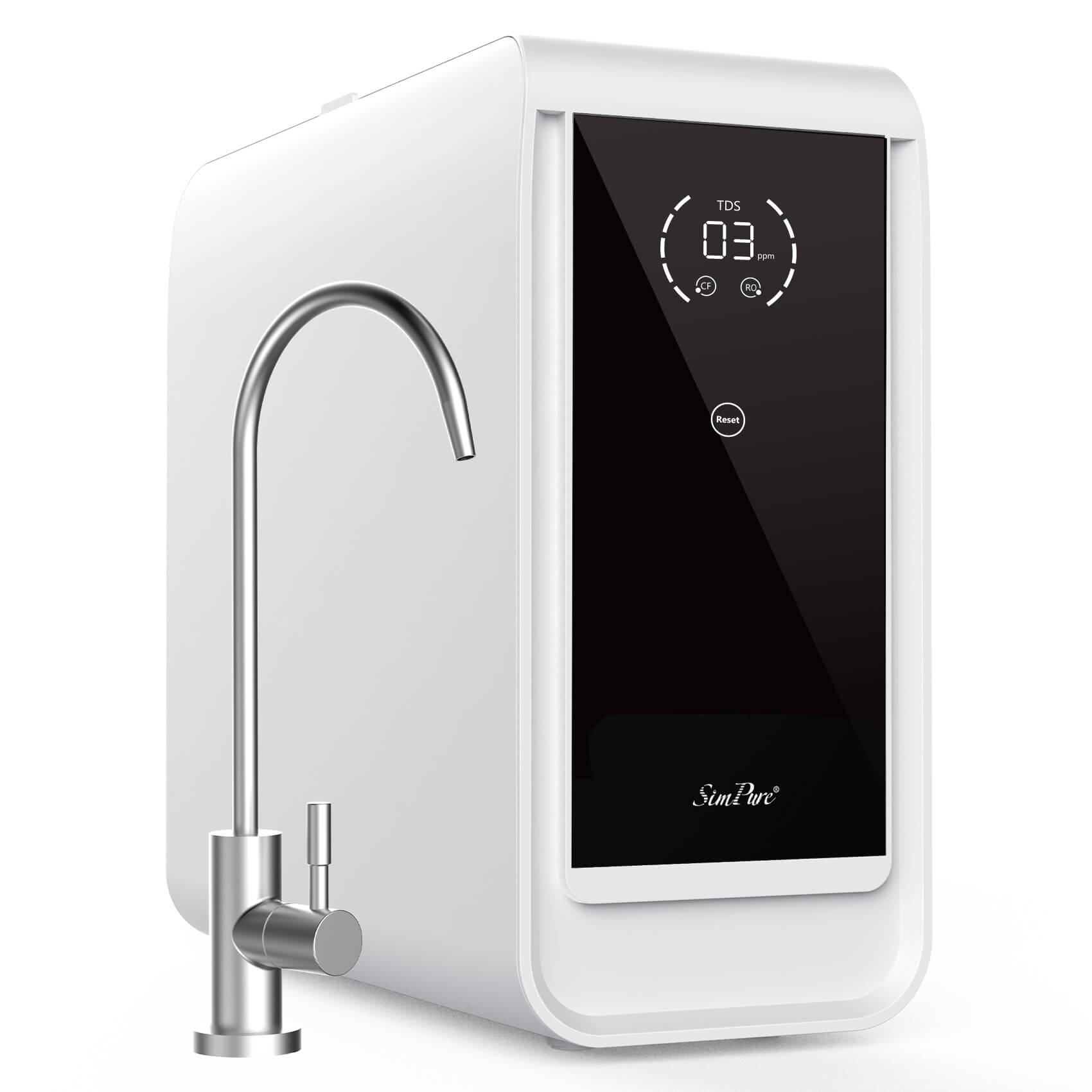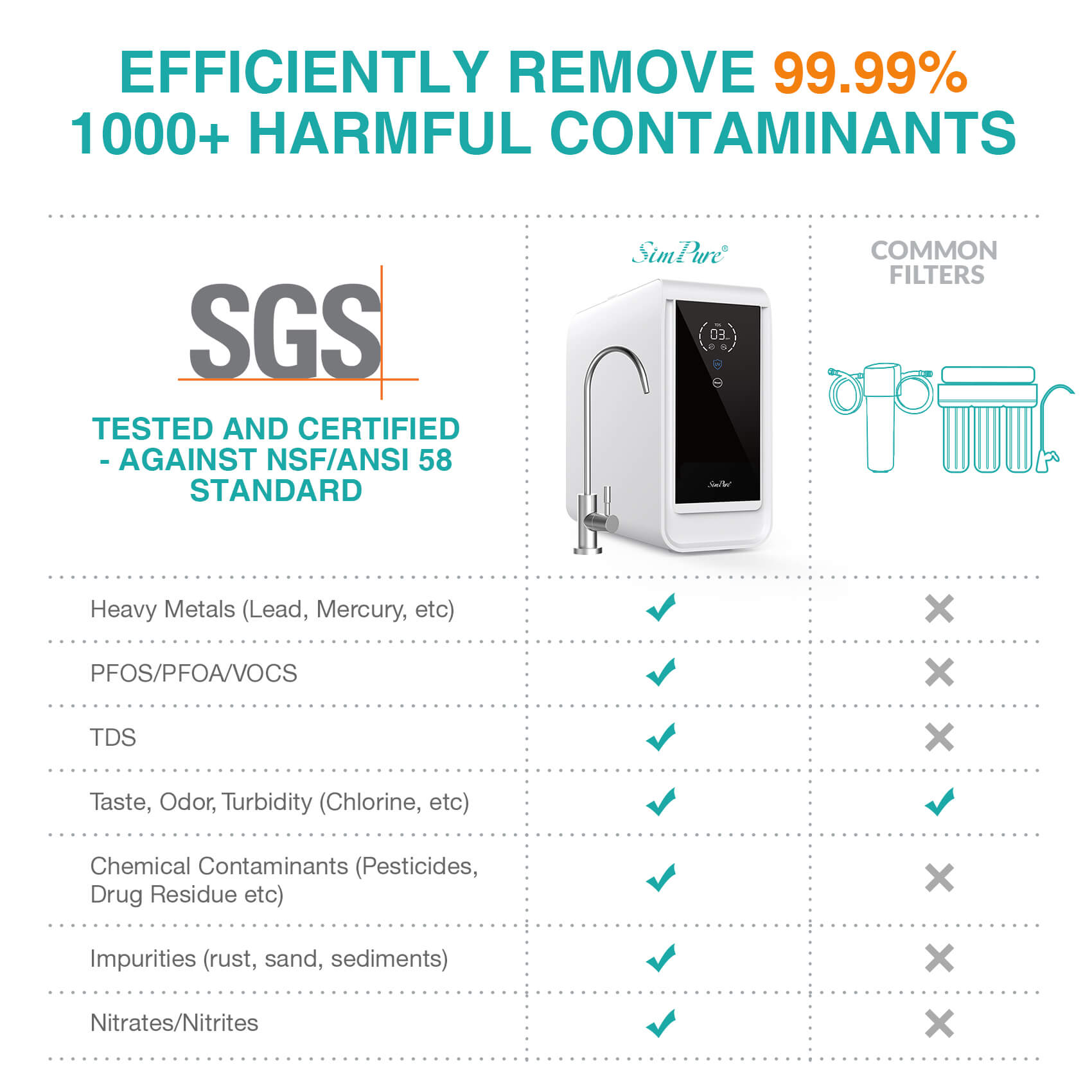As we know, chloramines are also very cheap and popular and are mostly the most used disinfectant when treating public water. Although tending to keep public water safe, in case it is not well filtered, it might be attributed to some side effects that include health problems. With excessive chloramine, ranging from irritating eyes, hair, and skin, to even a sharp metallic taste, public water becomes extremely unsafe for use and consumption.
In this regard, chloramines should be removed from water intended for drinking to avoid these possible health effects. Unfortunately, chloramines are a bit harder to remove via normal filters than free chlorine. This, therefore, has a need for the application of advanced systems of water filtration that remove chloramines completely from the water and significantly improve the quality of water. This blog post highlights some of the best water filters that remove chloramines from water that might lead to some health- risks if accumulated in the water in excess.
Health Risks Associated with Chloramine
Though CDC avows that 4 ppm of chloramine in the water is safe to use, here is what it may lead to the following health issues if it crosses the borderline. Here are the most common health effects of chloramine in water.
1. Health Impacts
Chloramines cause significant respiratory problems, especially in individuals with a history of respiratory issues. Chloramine fumes created due to the reaction with the air will give a stinging sensation to those with a weak respiratory system.
The Virginia Department of Health states that chloramine can make people sneeze, cough, wheeze, catch breath, and even exacerbate asthma. Such effects often result when people swim in pools with high levels of chemically burned chloramine.

2. Skin and Hair Effects
Water containing excessive chloramine over 4.0 mg/L causes severe skin issues, including eye irritation and hair damage in individuals. Individuals with sensitive skin often experience rashes or breakouts when showering in water with a high amount of chloramine. Moreover, chloramines worsen symptoms in individuals with a pre-existing skin condition like acne or eczema.
Besides skin issues, chloramines can cause severe eye irritation. You may experience a stinging sensation or bloodshot eyes after coming out from the shower or the swimming pool with excessive chloramine.
3. Effects on Plumbing and Appliances
In addition to skin and respiratory problems, chloramines have also been reported to have an effect on the plumbing lines, metal pipes, and appliances over a period. The addition of chloramine in public water supply is found, at times, to cause a change in water chemistry. This, together with low pH and alkalinity, results in pipe corrosion. When corrosion is out of control, then ammonia in the water will be transformed into nitrates. This activity of turning ammonia in water into nitrates is nitrification. This causes copper pipes to leak. Also, corrosion can introduce lead into the water, which is potentially unsafe for use as lead can cause developmental problems in children.
Which Water Filters Can Remove Chloramine?
Chloramine is essentially toxic and leads to several health issues. So, it is important to filter them out of the water and make it safe for use. Here are the top water filters that remove chloramine in various ways.
1. Activated Carbon Filters
These filters are therefore installed massively to rid water of chlorine and its byproducts, which give water poor taste and quality. They are normally made from organic materials such as coconut shells.
This is a small, black porous bead that works in trapping the contaminants. In trapping the contaminants, water goes through the carbon filter. The chloramine gets trapped in the surface media of the filter since water comes out using the other end, turning out clean.
Removal Rate: Activated carbon filters can remove up to 70-90% of chloramine from water, depending on the filter’s quality and the flow rate of the water passing through it. For optimal results, these filters should be used in conjunction with other filtration methods, especially in areas with high chloramine concentrations.
Cost: The cost of activated carbon filters varies widely depending on the system. For standalone units, prices typically range from $50 to $200, while replacement cartridges usually cost between $20 and $50.
Best For: General household use, particularly in whole-house filtration systems or as part of a multi-stage water purification system. They are ideal for those looking to reduce chloramine levels in both drinking water and water used for bathing.
2. Catalytic Carbon Filters
Catalytic carbon filters are an advanced form of activated carbon filters specifically engineered to remove chloramine more effectively. The key difference lies in the catalytic carbon's enhanced ability to break down the strong chemical bonds of chloramine, thanks to its higher oxidative capabilities. As water passes through the catalytic carbon, chloramine is not just adsorbed but chemically transformed into harmless substances like nitrogen, ammonia, and chloride. This transformation process makes catalytic carbon filters particularly efficient for treating chloramine-laden water.
Removal Rate: Catalytic carbon filters are highly effective, typically removing over 90% of chloramine from water. This high removal rate makes them a preferred choice in areas where chloramine levels are consistently high.
Cost: Catalytic carbon filters tend to be more expensive than regular activated carbon filters due to their enhanced performance. Prices typically range from $100 to $300 for standalone units, with replacement cartridges costing between $50 and $100.
Best For: These filters are recommended for households with high chloramine concentrations in their water supply or for users who require a more robust solution than standard activated carbon.
3. Reverse Osmosis Systems
The other popular method of removing chlorine and chloramine from water is through a reverse osmosis system which is the ideal water filter to remove chlorine and chloramine from water. RO systems are capable of removing a wide range of contaminants, including chloramine. These systems work by forcing water through a semipermeable membrane, which filters out particles as small as 0.0001 microns. While the membrane itself does not remove chloramine directly, RO systems often include pre-filters, such as activated carbon or catalytic carbon filters, that first break down and reduce chloramine levels. The purified water then passes through the RO membrane, ensuring that any residual contaminants are removed.
Removal Rate: Reverse osmosis systems, when equipped with the appropriate pre-filters, can remove up to 98% of chloramine from water. The exact removal rate depends on the quality of the pre-filters and the overall system configuration, but RO systems are highly reliable for achieving near-total chloramine reduction.
Cost: Reverse osmosis systems are generally more expensive than other filtration options, with prices ranging from $200 to $600 for under-sink units. Replacement filters and membranes also add to the long-term cost, usually ranging from $50 to $150 annually.
Best For: RO systems are recommended for households that require the highest level of water purity, particularly for drinking and cooking. They are also suitable for users who want a comprehensive solution that tackles not just chloramine but a broad spectrum of other contaminants, including heavy metals, fluoride, and nitrates.
4. Mixed Media Filters
Mixed media filters are multi-layered filtration systems that combine various types of filter media, such as activated carbon, catalytic carbon, KDF (Kinetic Degradation Fluxion) media, and sediment filters. This combination allows mixed media filters to tackle a broad range of contaminants, including chloramine, chlorine, heavy metals, and particulate matter. The layered approach means that water passes through different stages of filtration, each targeting specific impurities. In the case of chloramine, the activated and catalytic carbon layers are particularly effective, breaking down and adsorbing the chloramine molecules as water flows through the filter.
Removal Rate: Mixed media filters are highly effective, typically removing up to 90-95% of chloramine from water, depending on the specific configuration and quality of the media used.
Cost: Prices for standalone units can range from $150 to $500, while more advanced systems integrated into whole-house setups can cost $1,000 or more. Replacement filter cartridges or media typically cost between $50 and $150, depending on the frequency of replacement and the types of media used.
Best for: Mixed media filters are ideal for households looking for a versatile and comprehensive filtration solution. They are particularly suited for whole-house systems that need to address a variety of water contaminants, including chloramine, chlorine, heavy metals, and sediments.
5. Vitamin C Filters
Vitamin C filters are a unique and natural solution for removing chloramine from water, particularly in shower applications. These filters use ascorbic acid (Vitamin C) to neutralize chloramine. When water passes through the filter, the Vitamin C reacts with the chloramine, effectively breaking it down into harmless compounds. This method is not only effective but also gentle on the skin and hair, making it a popular choice for people with sensitive skin or allergies to chemicals found in tap water.
Removal Rate: Vitamin C filters can remove up to 99% of chloramine from water, especially in point-of-use applications like showerheads. While these filters are highly effective for short-term exposure, they are typically used in conjunction with other filtration methods for comprehensive water treatment.
Cost: Vitamin C filters are generally affordable, with prices ranging from $20 to $50 for shower filters. Replacement cartridges are also relatively inexpensive, typically costing between $10 and $30, depending on the brand and size of the filter.
Best For: These filters are recommended for individuals concerned with the effects of chloramine on their skin and hair, particularly when showering. They are especially beneficial for those with sensitive skin, allergies, or conditions like eczema. Vitamin C filters are commonly used in showerheads but can also be incorporated into smaller, portable filtration systems for drinking water.
SimPure Best 4 Water Filters for Chloramine Removal
No matter how you wash your skin, doing so with highly chloramine-laden water only puts your skin and overall health at risk of severe damage. With that said, here are some of the very best chloramine filters when it comes to SimPure water filters that remove chloramine from water, considerably improving the water overall and affecting the taste.
From Drinking:
1. SimPure DB20P-3 Whole House Water Filter Chloramine Removal
SimPure DB20P-3 Whole-house chloramine water filter features high-quality pre-installed 3-stage water filters, CTO, GAC, and PP sediment filters that effectively eradicate chloramine from water, guaranteeing clean and pure water.
During the first stage, the PP sediment filter removes up to 99% of sand, sediment, and dust. The second filter, the GAC filter, eliminates chlorine, rust, bad odor, and color from water. The third CTO filter reduces up to 99% of chlorine, herbicides, and other contaminants, resulting in clean water.
This chloramine water filter produces an impressive 0.25 gallons per second, ensuring clean and pure water continuously. Moreover, it is easy to set up and requires minimal maintenance.
2. SimPure Q3-600 Under Sink RO System For Chloramine Removal
SimPure Q3-600 Under Sink RO System is one of the best water filters that remove chloramine effectively, thanks to its SGS certification and exclusive patent technology, resulting in a super-low TDS. Its powerful 600GPD output guarantees a consistent supply of pure water, while the tankless design minimizes space usage and potential contamination, ensuring your household always enjoys fresh, chloramine-free water.
3. SimPure Y7P Series Countertop RO System For Chloramine Removal
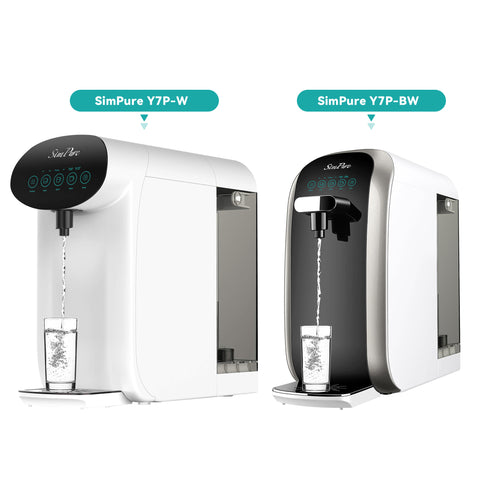
SimPure Y7P Series Countertop Reverse Osmosis Water Filter Dispenser is an exceptional choice for chloramine removal, ensuring your drinking water is free from harmful contaminants. Its 4-stage filtration system, including advanced RO and UV purification, effectively removes 99.99% of chloramine, providing safe and clean water. The system's efficient design and zero-installation setup make it perfect for any kitchen, delivering fresh-tasting, purified water on demand.
For Showing:
4. SimPure Best 20 Stage Shower Filter to Remove Chloramine
If you are looking for the ideal shower filter to remove chloramine at home, then consider the SimPure 20-Stage Best Shower Water Filter. It features multiple filters comprising KDF 55, alkaline ceramic balls, activated carbon, Vitamin Cand other filtration materials that completely remove chloramine from water when showering. This helps protect your hair against chloramine damage. Moreover, it can eradicate heavy metals, rust, sand, and sediments that cause damage to your hair and skin. All of this makes the SimPure 20-Stage Shower Water Filter the best shower filter for chloramine.
Bonus: SimPure Comprehensive Chloramine Filtration Solutions
If you are shopping for an all-house integrated chloramine filtration solution, SimPure can help. We style all kinds of filters, such as pre-filters, in-line filters, RO systems, and chloramine shower filters that completely eliminate chloramine byproducts. Not treating the water before it hits your major filtration system would result in being overwhelmed by the high levels of such a potent contaminant. The inline water filter makes water quality better, while the RO systems totally eliminate bacteria and viruses, literally making water safe to drink. The shower filters purify water to the extent that it's safe to use while taking a shower. Here is the final answer in chloramine filtration: guaranteed clean water for you and your family, with no more worries about health.
Conclusion
Choosing the right water filters that remove chloramine is essential to protecting your health and eliminating chloramine from the water completely. In that regard, SimPure is the best and most trustworthy water filtration solution that offers a range of quality products designed to cater to different household requirements. Explore more of SimPure's comprehensive water filtration systems now.
Recommended Reading
Sources:

